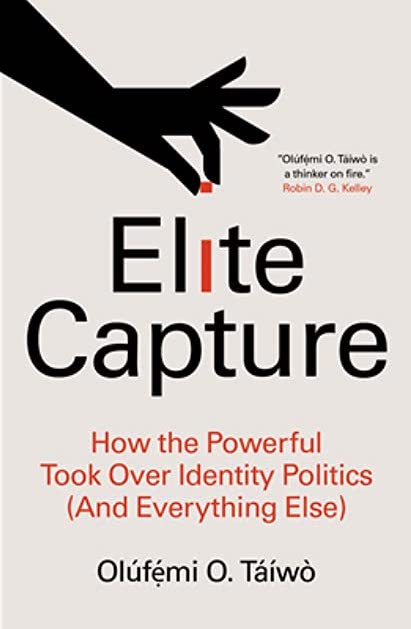The discourse surrounding identity politics has become fraught with misunderstanding and co-optation by forces across the political spectrum. What was once a radical discourse initiated by the queer, Black, and Indigenous feminists of the Combahee River Collective has become a movement defined by incapacity, stigmatization, and misinterpretation. Olúfẹ́mi O. Táíwò sets out to clarify the nature of the identity politics movement and its relationship to the powerful institutions and individuals which have misappropriated the original radicalism of this idea to serve their own political gains. Through a materialist and narrative approach to identity politics and social critique, Táíwò argues that the problem is not with identity politics as such, but a specific power called “elite capture,” which stifles the potential latent in identity politics and genuine leftist social organizing. He concludes that, rather than deferring responsibility and accepting symbolic gestures of empty representation, we must begin to construct a new politics and a new house altogether.
Articles by Hunter Hilinski
Hunter Hilinski is a PhD student in political science at the University of California, Irvine. He holds bachelor’s degrees in political science and philosophy from Wilkes University, and a master’s degree in political science from Colorado State University. His research focuses are in German political thought, the critical theory of the Frankfurt School, race and ethnic politics, psychoanalysis, and environmental studies. Currently, he is writing on the Utopian materialism of Ernst Bloch and tracing the colonial history of coffee to modern myth making. He is also a proud UAW (United Auto Workers) union organizer and an avid football (soccer) fan.
